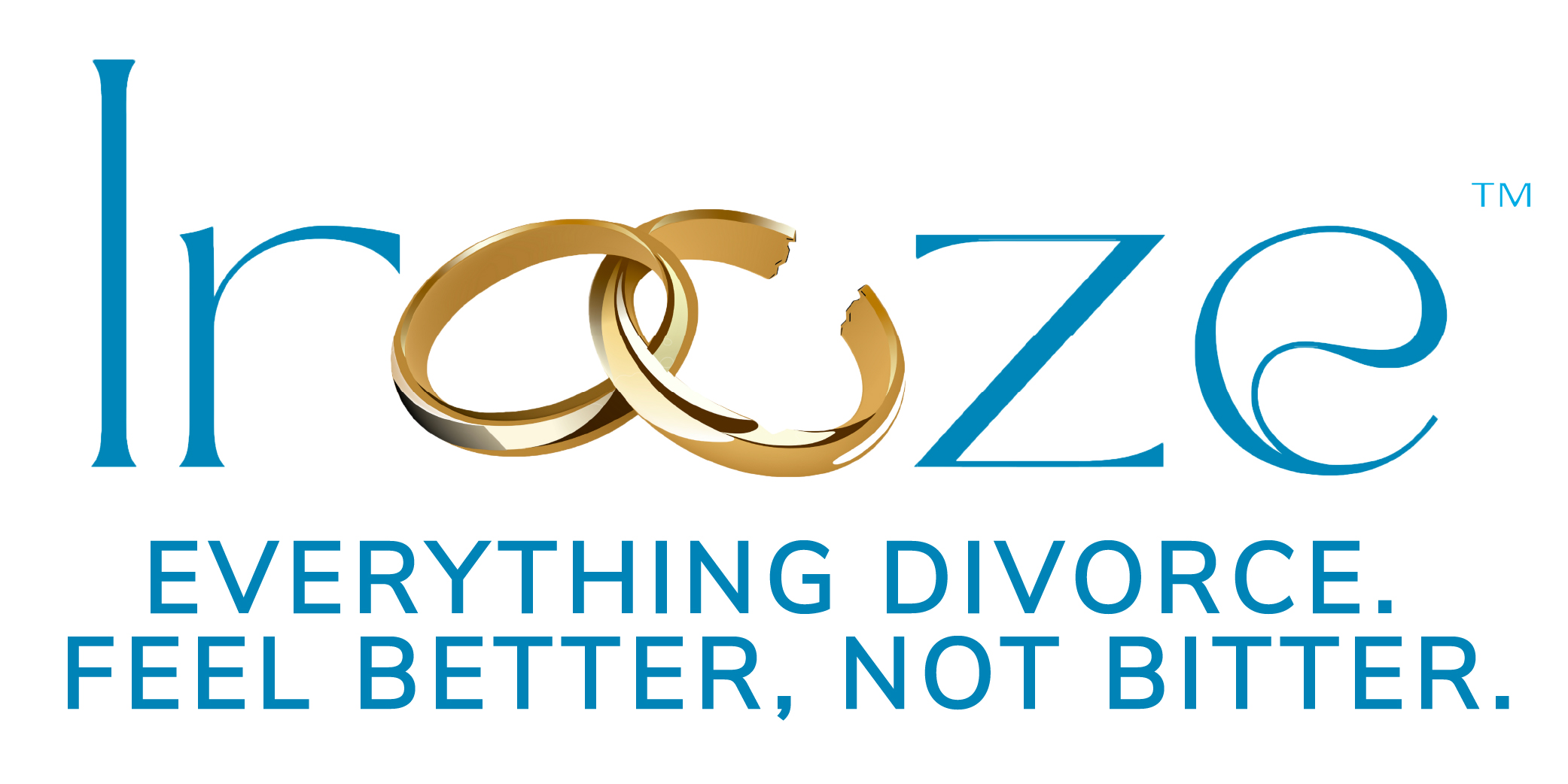Navigating life after divorce can feel like stepping into uncharted territory. The emotional toll, financial impact, and major life adjustments can leave you feeling lost and overwhelmed. However, it’s important to remember that divorce doesn’t have to be the end of your world; it can be the beginning of a new chapter filled with growth, self-discovery, and opportunities for a fulfilling life.
One of the first steps many people take is to review their legal standing: gather and secure important documents (like marriage certificates, financial records, deeds, and wills), consult with a family law attorney, and understand your rights regarding asset division, alimony, and custody. These practical steps can give you clarity and a feeling of actionable control during the early shock of transition.
In this comprehensive guide, we will provide you with valuable insights, practical tips, and essential resources to help you rebuild and thrive after divorce. From managing your emotions and fostering self-care to rebuilding your finances and establishing a strong support system, we will address every aspect of your post-divorce journey.
Our team of experts understands the complexities of divorce and has curated expert advice to empower you during this transformative time. Whether you’re embarking on a new career, rediscovering your passions, or navigating the world of dating again, this guide will equip you with the tools you need for a successful and fulfilling life after divorce.
Join us as we explore the path to healing, personal growth, and resilience in the aftermath of divorce. It’s time to embrace the possibilities of a brighter future and create the life you deserve.
Emotional Healing After Divorce: Understanding the Journey

Divorce is a deeply emotional experience, and it’s essential to acknowledge and understand the range of emotions you may be going through. It’s normal to feel a sense of loss, grief, anger, and even relief. Each person’s journey is unique, and there is no right or wrong way to feel during this time.
The stress and emotional upheaval of divorce often also show up in your body — you may experience insomnia, frequent headaches, digestive issues, tension in your muscles, or changes in appetite. Recognizing that your physical symptoms may be tied to emotional stress allows you to treat your body and mind together in your healing process.
Allow yourself to grieve the end of your marriage and process the complex emotions that arise. Seek support from friends, family, a divorce coach or a therapist who can provide a safe space for you to express your feelings and work through the emotional challenges. Remember, healing takes time, and it’s important to be patient and kind to yourself throughout the process.
During this emotional journey, it’s crucial to practice self-care. Take time to engage in activities that bring you joy and help you relax. This could be anything from taking a walk in nature, practicing mindfulness or meditation, indulging in a hobby, or pampering yourself with a spa day. Taking care of your emotional well-being is essential for rebuilding and thriving after divorce.
How to Rebuild Self-Esteem and Confidence After Divorce
Divorce can take a toll on your self-esteem and confidence, but it’s important to remember that your worth is not defined by the end of your marriage. Take this opportunity to rediscover your strengths and build your self-esteem from within.
Start by setting small goals and celebrating your achievements along the way. This could be as simple as learning a new skill, taking up a fitness routine, or challenging yourself to step out of your comfort zone. Surround yourself with positive affirmations and practice self-love and self-compassion.
Engage in activities that make you feel good about yourself and boost your confidence. This could include volunteering, joining a club, or pursuing a hobby that brings you joy. Surround yourself with supportive and uplifting people who believe in your potential and remind you of your worth.
Remember, rebuilding your self-esteem takes time and effort, but with persistence and self-belief, you can emerge stronger and more confident than ever before.
Rediscovering Yourself and Your Identity After Divorce

Divorce often brings significant changes to your life, and it’s an opportunity to rediscover who you are as an individual. Take this time to explore your interests, passions, and values, and reconnect with the things that bring you joy.
When you feel more stable in your emotional and self-identity work, you may start considering dating again, but there’s no fixed timeline. A good indicator is when your desire for companionship comes from wanting to share your life, not to fill a void. Go slowly, set boundaries, and use dating as a way to express your renewed sense of self rather than to heal it.
Reflect on your past experiences and the lessons you’ve learned. Use this knowledge to shape your future and create a life that aligns with your authentic self. Explore new hobbies, take up new challenges, and embrace opportunities for personal growth and self-discovery.
Consider seeking counseling or therapy to help you navigate through this process of rediscovery. A therapist can provide guidance and support as you explore your identity, heal from past wounds, and pave the way for a brighter future.
Remember, divorce doesn’t define you. It’s an opportunity to redefine yourself and create a life that aligns with your true values, passions, and aspirations.
Co-Parenting After Divorce: How to Manage Your Relationship With Your Ex

Co-parenting can be challenging, but it’s essential to prioritize the well-being of your children and maintain a positive relationship with your ex-spouse. Communication and cooperation are key in navigating this new dynamic.
Set clear boundaries and establish a co-parenting plan that outlines responsibilities, routines, and expectations. Keep lines of communication open but respectful, focusing on the best interests of your children. Remember to maintain a united front when it comes to parenting decisions and avoid involving your children in any conflicts or disagreements.
If co-parenting becomes difficult, consider seeking the assistance of a mediator or divorce coach who can help facilitate healthy communication and resolve conflicts. It’s important to prioritize the well-being of your children and create a stable and nurturing environment for them to thrive.
While managing your relationship with your ex-spouse, it’s also crucial to establish healthy boundaries for yourself. Set limits on communication and interactions that may be triggering or detrimental to your emotional well-being. Focus on your own healing and growth, and surround yourself with a support system that can help you navigate the challenges of co-parenting.
Rebuilding Financial Stability After Divorce
Divorce often has significant financial implications, and it’s important to take steps to rebuild your financial stability. Start by assessing your current financial situation and creating a budget that reflects your new reality. Consider working with a Certified Divorce Financial Analyst, CDFA who can provide guidance on managing your finances and planning for the future.
For example, if you are looking to create a budget, understand the numbers on the spreadsheet, do some math with someone who can help you better understand how to create a strategic plan and build financial stability.
In a nutshell, you would want to take stock of your assets and liabilities and make necessary adjustments to ensure long-term financial security. This may involve renegotiating debts, updating insurance policies, or making changes to your investment portfolio. It’s important to take a proactive approach to financial management and seek professional advice when needed.
As you rebuild, be aware of common pitfalls: don’t accept financial terms you don’t understand, avoid co‑signing on loans recklessly, watch out for hidden debts in your ex’s name, and consult a tax advisor about changes to filing status or deductions. Ensuring you don’t make these errors early helps you gain long-term financial stability.
Consider exploring new career opportunities or investing in further education to enhance your skills and increase your earning potential. Update your resume, network with professionals in your field, and consider seeking out career counseling or divorce coaching to help you navigate this transition effectively.
Remember, rebuilding your finances after divorce takes time and effort. Be patient with yourself and take small steps towards financial stability. With proper planning and a proactive mindset, you can regain control over your financial future.
Self-Care After Divorce: How to Heal and Rebuild

Going through a divorce can be emotionally draining and mentally exhausting. It’s crucial to prioritize self-care during this challenging time. Taking care of yourself will not only help you heal but also lay the foundation for a strong and fulfilling future.
1. Processing Emotions in the Wake of Divorce
Divorce brings with it a wave of emotions that can feel overwhelming. It’s important to allow yourself to feel and process these emotions in a healthy way. Give yourself permission to grieve the end of your marriage and acknowledge the pain you may be experiencing Journal.ing, talking to a trusted friend, or seeking therapy can be helpful in navigating these emotions. Remember, healing takes time, so be patient with yourself.
2. Focus on Your Physical Well-Being
Taking care of your physical health is just as important as nurturing your emotional well-being. Exercise regularly, eat a balanced diet, and get enough sleep to support your body’s healing process. Engaging in physical activities like yoga or hiking can also help reduce stress and improve your overall well-being. Remember, self-care is not selfish; it’s necessary for your recovery.
3. How to Practice Self-Compassion After Divorce”
Divorce can sometimes lead to feelings of guilt or self-blame. It’s essential to practice self-compassion and be gentle with yourself during this time. Remind yourself that you are not defined by your divorce and that it’s okay to make mistakes or feel uncertain about the future. Treat yourself with the same kindness and understanding you would offer a close friend.
Seeking professional help and divorce coaching
Divorce can be a complex and emotionally challenging process. Seeking professional help and therapy can provide you with the support and guidance you need to navigate this new chapter of your life.
1. Find a Divorce Coach – A divorce coach is your best chearleader whose focus is to help you move forward by identifying your new goals in your life 2.0. They are trained to properly understand the divorce process and able to carefully support you as you navigate through the divorce process and satisfy your dreams.
Hope Firsel dives deeper into the difference between a coach and a therapist:
2. Finding the Right Therapist for Divorce Recovery
A therapist can offer a safe and non-judgmental space for you to explore your emotions, process your grief, and gain valuable insights into yourself. Look for a therapist who specializes in divorce or trauma, as they will have the expertise to help you through this specific life transition. Regular therapy sessions can provide you with coping mechanisms and strategies to navigate the challenges of rebuilding your life after divorce.
3. Joining a Divorce Support Group: What to Know
Joining a support group for individuals going through divorce can be incredibly beneficial. It allows you to connect with others who are experiencing similar challenges and provides a supportive community where you can share your thoughts and feelings. Support groups can also offer practical advice and resources for rebuilding your life after divorce.
4. Financial Guidance
Divorce often has significant financial implications. Seeking the guidance of a financial planner or advisor can help you navigate the complexities of dividing assets, managing debts, and planning for your financial future. A professional can assist you in creating a budget, setting financial goals, and making informed decisions to secure your financial well-being.
Creating a Support System and Community After Divorce
When going through a divorce, it’s important to surround yourself with a strong support network to lean on during this challenging time.
1.How to Lean on Friends and Family for Divorce Support
Reach out to your family and close friends for emotional support. Let them know what you’re going through and allow them to be there for you. Share your thoughts, fears, and aspirations with them. Having a strong support system will provide you with the love, encouragement, and understanding you need as you rebuild your life.
2. Connect with Other Divorcees
Seek out communities or groups where you can connect with individuals who have gone through or are going through a divorce. These communities can provide a sense of belonging and understanding that is crucial during this transformative time. You can share experiences, exchange advice, and gain valuable insights from others who have walked a similar path. However, beware of the “I hate my ex” clubs- they have been proven to provide unrealistic expectations, mislead you into making a decision you will regret or that will backfire as you mingle with people who use vengeance and vindictiveness as their main aim.
However, managing relationships with mutual friends can be delicate. Some may feel pressured to “pick sides,” or bring up your ex in conversation frequently. It’s okay to set gentle boundaries — for example, limit discussions about your divorce in mixed settings, take a break from gatherings where your ex is present, or cultivate new friendships outside of your old social circle to relieve tension.
3. Making New Connections and Expanding Your Social Circle”
Consider exploring new social activities or joining clubs or organizations that align with your interests. This can help you meet new people and expand your social network. Building new connections can provide a fresh perspective and open doors to new opportunities in your personal and professional life.
4. Exploring New Hobbies and Interests
Divorce presents an opportunity for self-discovery and personal growth. Embracing new hobbies and interests can not only help distract you from the pain of divorce but also enable you to explore your passions and rediscover yourself.
- Pursue a long-lost passion: Think back to the things you loved doing before your marriage or the activities that used to bring you joy. Revisit those passions and allow yourself to reconnect with them. Whether it’s painting, playing a musical instrument, or practicing a sport, engaging in activities that bring you happiness can be therapeutic and empowering.
- Try something new: Use this time to explore new hobbies or activities that you’ve always wanted to try. Take a cooking class, learn a new language, or join a book club. Trying new things can help you step out of your comfort zone, meet new people, and discover hidden talents or interests. Embracing new experiences can be invigorating and provide a fresh perspective on life after divorce.
- Focus on personal growth : Divorce often prompts introspection and self-reflection. Use this opportunity to invest in personal growth and self-improvement. Engage in activities such as reading self-help books, attending workshops or seminars, or working with a life coach. These endeavors can help you gain clarity, set goals, and develop a stronger sense of self as you rebuild your life.
Finding Happiness and Purpose After Divorce
Divorce may feel like the end of one chapter, but it’s also the beginning of a new one filled with possibilities for happiness and fulfillment.
As you move forward, consider setting milestones to measure growth it might be completing a new course, sustaining a healthy habit for 30 days, saving an emergency fund, or going on a first date without anxiety. Periodically reflect on where you were a month ago or six months ago to see how far you’ve come. Recognizing small wins helps maintain momentum and boosts confidence.
1. Set New Goals: How to Create a Vision for Your Future
Take the time to reflect on what you want for your future. Set new goals for yourself, both short-term and long-term. Whether it’s pursuing a new career, traveling to new destinations, or focusing on personal growth, having goals can provide you with a sense of purpose and direction. Write down your goals and create an action plan to turn them into a reality.
2. Rediscover yourself: Reclaim Your Identity and Purpose
After a divorce, it’s important to take time to rediscover yourself and your identity outside of your former relationship. Reflect on who you are as an individual, your values, and your passions. Use this opportunity to reinvent yourself and create a life that aligns with your authentic self. Embrace your newfound independence and embrace the freedom to shape your own future.
3.Embracing New Possibilities After Divorce: A Fresh Start Awaits
Approach life after divorce with an open mind and an optimistic outlook. Embrace the possibilities that lie ahead and be open to new experiences and relationships. Remember that you deserve happiness and fulfillment, and with time and effort, you can create a life that brings you joy.
In conclusion, life after divorce can be a challenging and transformative time. However, by taking care of yourself, seeking professional help, building a support network, exploring new hobbies, and embracing the future, you can rebuild and thrive after divorce. Remember, this is your opportunity to create a life that aligns with your authentic self and brings you happiness and fulfillment. Embrace the possibilities of a brighter future and step into this new chapter with resilience and optimism.





